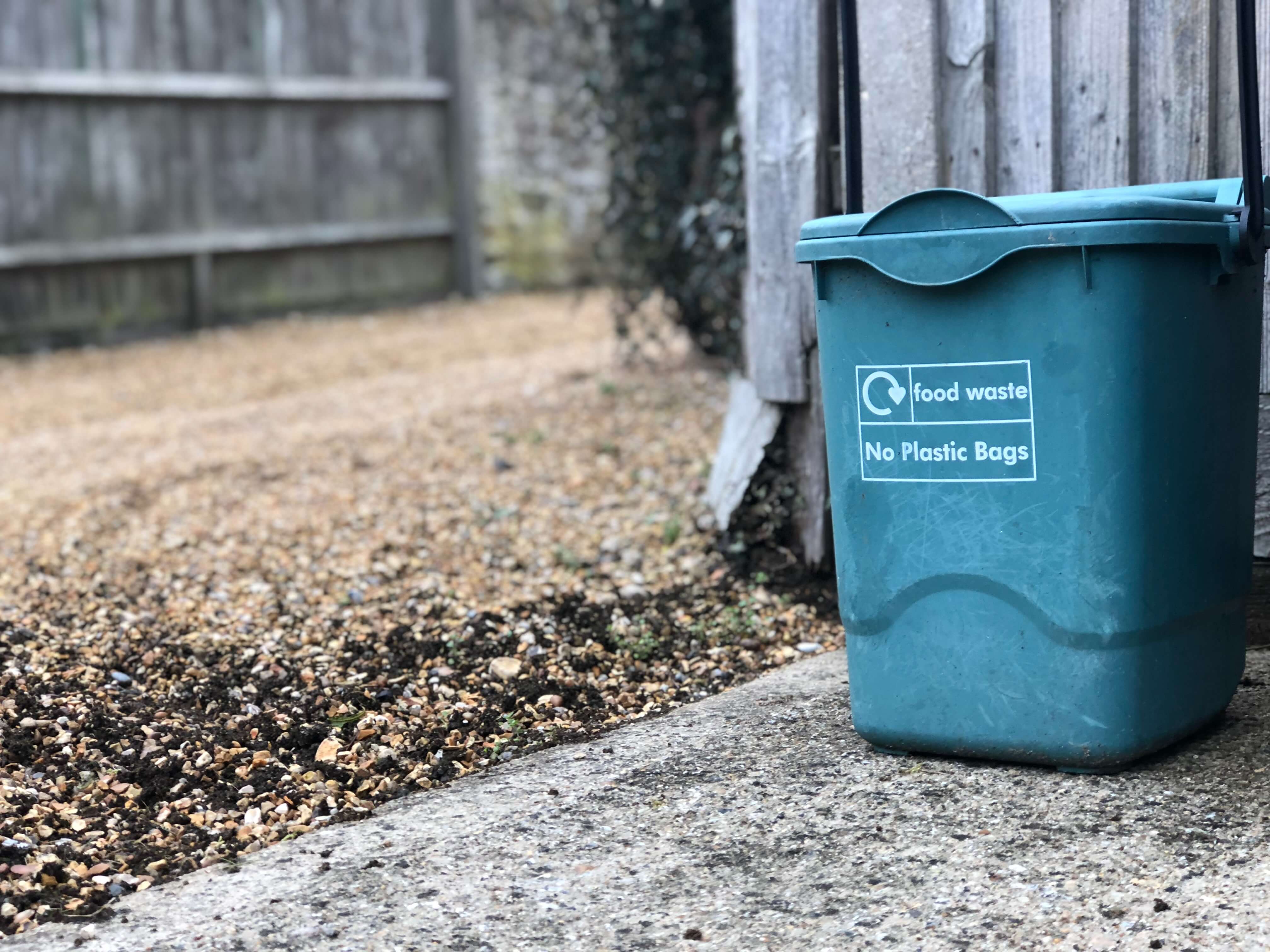The Mashroom Bindex: Exploring recycling bin rules and data!
According to Scrib, in the UK we throw away 13 billion steel cans every year, which when stacked on top of each other would reach the moon!
Everything from council tax to bin collection varies across the country. When it comes to bins, the United Kingdom has both private and council recycling systems in operation in which to collect materials from households. This means that collection methods and the materials that each authority collects, can vary widely from one council to another.
Recycling achievement also varies significantly from council to council in the UK, with :
- households in the lowest achieving locations recycling 1/5 of their waste
- households in the top performing areas recycle as much as 71% of their waste
It appears that many of us are discouraged from recycling due to a lack of information on recycling rules. Furthermore, even though all the key information about your local council is available to the public, it is not always easily accessible.
The data and the figures relevant to recycling and bin waste, for England, Wales, Scotland and Northern Ireland are published at different times of the year. This is why here at Mashroom we have answered all the important questions you may have and the rules councils adhere to across the UK, as these can vary considerably.
We have also created simple maps and visuals to make all the information as easy to understand as possible.
Which areas of the UK have the most and least number of recycling bins?
Recycling reduces waste and saves money for local councils, but with more and more bins for different item types, how many bins is too many, or too few?
With this in mind, which UK councils require their residents to have the most and least number of recycling bins?
The areas that require the most recycling bins are:
The following councils require 7 recycling bins:
- Chelmsford City Council
- Cotswold District Council
- North Devon District Council
- Bridgend County Borough Council
- Flintshire County Council
- Neath Port Talbot County Borough Council
The areas that require the least recycling bins are:
The following councils only require 2 recycling bins:
- Barrow-in-Furness Borough Council
- Chichester District Council
- Isles of Scilly Council
- London Borough of Southwark (additional bin available for a fee)
- London Borough of Tower Hamlets (additional bins are available depending on the type of house you live in)
What recycling bins do the different UK councils have?
There isn’t even a standard in how they share that information, it’s easy to find on some council websites but on others it’s extremely difficult, so hope you move to an area that shares this type of information in an easy to find way!
Most British households have:
- A black wheelie bin
- A blue recycling bin
- A brown recycling bin
- A green recycling bin or container.
We are all encouraged to Reuse, Reduce, and Recycle and recycling has become part of daily life, but because the UK has so many coloured bins the whole process has become slightly confusing.
Black Rubbish Bins / Recycling Bins
In many parts of the UK, black bins are for general waste that cannot be recycled or composted, these can also be grey in some areas of the country.
Blue Recycling Bins
Blue recycling bins are used in the UK to collect dry recyclables, such as:
- Paper
- Newspapers & magazines
- Cardboard
- Junk mail
- Cereal boxes
It is important to note that some UK councils use red recycling bins instead of blue recycling bins for dry recyclables.
Red Recycling Bins
Red recycling bins are generally used for plastics such as:
- Plastic bottles
- Plastic punnets
- Food trays
- Empty shampoo bottles
Brown Recycling Bins
Not all councils offer brown recycling bins but they are for mixed recyclables such as:
- Plastic bottles
- Food tins
- Drinks cans
- Tin foil
- Glass bottles
It is important to note that in some areas of the UK brown recycling bins are for garden and food waste only.
Green Recycling Bins
Green recycling bins are used for glass recyclables such as glass bottles and jars.
For those with a green food waste recycling container, this is to be used for recycling waste such as:
- Meat and fish
- Dairy products
- Raw and cooked fruit and vegetables
- Cakes and pastries
- Cooked food leftovers
- Teabags
- Coffee grounds
Yellow Recycling Bins
Yellow recycling bins are used to collect textiles such as:
- Clothes
- Bed linens
- Towels
Grey Recycling Bins
The use of Grey Recycling Bins varies significantly across the UK. Some councils use them for general household waste, however some councils use them for dry recyclables like paper and food cans.
Purple Recycling Bins
Purple recycling bins are increasing in numbers around the UK, but are still relatively new. It appears that they have different uses depending on which part of the UK you are. In Liverpool, for instance, purple recycling bins are used for general household waste, food waste, and pet food.
However, in Ayrshire, purple recycling bins are used for recyclables such as glass and plastics. It is also worth noting that some purple bags are for textile recycling, it is therefore important to check on your council websites for their individual regulations.
How many missed bin complaints have there been?
According to figures obtained by the BBC, councils in the UK received more than 1.8 million complaints in 2018 regarding waste not being collected.
A survey of councils has revealed that the number of complaints in connection with missed bin collections has increased by a third since 2014.
Additionally, on average, 4,500 complaints in regards to missed bins were made to UK councils every day in 2018.
With the increasing number of complaints each year in the UK, we wished to explore the top 10 councils that have (with available data through Freedom of Information requests) the most number of bin complaints:
Most number of bin complaints:
- London Borough of Bexley: 38,808
- Kirklees Council: 29,029
- Cornwall Council: 21,510
- Tonbridge and Malling Borough Council: 13,896
- Bradford Metropolitan District Council: 12,252
- London Borough of Camden: 11,263
- Dartford Borough Council: 10,700
- Caerphilly County Borough Council: 7,576
- Stockport Metropolitan Borough Council: 6,625
- Nuneaton and Bedworth Borough Council: 6,100
The top 10 councils that have (with available data through Freedom of Information request) the least number of bin complaints:
Least number of bin complaints
- Adur and Worthing Council: 0
- City of London: 0
- Leicester City Council: 0
- Southampton City Council: 0
- Uttlesford District Council: 0
- Selby District Council: 1
- Calderdale Metropolitan Borough Council: 2
- Ryedale District Council: 2
- South Oxfordshire District Council: 2
- Wokingham Borough Council: 2
How many missed bin collections did the council experience?
With the increasing number of bin complaints, we have compiled a list of the councils with the top 10 most and least missed bin collections that have available data:
The top 10 councils with the most missed bin collections:
- London Borough of Bexley: 38,808
- Brighton and Hove City Council: 37,455
- Norwich City Council: 31,777
- London Borough of Richmond upon Thames: 30,471
- Thanet District Council: 29,479
- Wiltshire Council: 29,136
- Tunbridge Wells Borough Council: 28,254
- Chelmsford City Council: 25,459
- Manchester City Council: 24,978
- South Somerset District Council: 24,073
The top 10 councils with the least missed bin collections:
- Rhondda Cynon Taf County Borough Council: 32
- City of London: 83
- Royal Borough of Kensington and Chelsea: 113
- Cannock Chase District Council: 220
- Braintree District Council: 220
- Dover District Council: 274
- Newport City Council: 361
- Hambleton District Council: 384
- Isle of Anglesey County Council: 436
- Bournemouth Borough Council: 450
Which councils have enforced recycling fines?
The Government encourages a “measured and balanced approach” when it comes to recycling and that people should not be penalised for “minor breaches of waste bin rules”.
The UK government believes that the use of fines and penalties should only be enforced when there is a “genuine harm to the local environment”.
Your council can issue fines and penalties under section 46A of the Environmental Protection Act 1990 if an individual is not following the waste collection rules. The rule breaking needs to be causing or likely to cause a nuisance and needs to produce a negative effect or likely to have a detrimental effect on local amenities.
Councils can issue fixed penalties and fines if waste left out is:
- Causing an obstruction to neighbours
- Restricting access to the pavement or street
- Is likely to attract vermin such as foxes and rats
- Is unsightly
Our Freedom of Information request reveals that out of 349 councils where data was explored, the only councils that actually issued fines in the past five years were:
Blaenau Gwent County Borough Council
Which delivers services to Abertillery, Blaina, Brynmawr, Ebbw Vale, Nantyglo & Tredegar, 5 fines were issued in 2018/2019, 27 were issued in 2019/2020 and 35 were issued in 2020/2021.
Merthyr Tydfil County Borough Council
Which is the governing body for Merthyr Tydfil County Borough, one of the Principal Areas of Wales, 7 fines were issued in 2019/2020 and 3 fines were issued in 2020/2021.
Stoke-on-Trent City Council
Which is the local authority of Stoke-on-Trent, a unitary authority in the West Midlands region, issued 3 fines in 2018/2019.
London Borough of Waltham Forest Council
Which is the local authority for the London Borough of Waltham Forest in London, issued 1 fine in 2018/2019, 5 fines in 2019/2020 and 9 fines in 2020/2021.
How many bin collection employees have left this financial year?
Between October 15th and October 18th 2021, Derbyshire Dales bin collection staff, represented by the trade union GMB, went on strike after negotiations over pay and working conditions. Furthermore, it is worth noting that many private lorry companies usually offer workers a much better wage than the council.
Mick Coppin, GMB Regional Organiser highlighted the importance of bin collection employees:
Company management has failed to do this and they are to blame for these disruptions
This strike will no doubt have a significant impact on bin collections throughout the area, Serco management need to take that seriously to stop waste piling high
These are key workers who continued serving their communities throughout the pandemic – they are not just legs and arms
Bin collection employees, as shown above, perform a vital service for the community and the less that leave the better. However, we found that there were a number of Councils around the UK who had large numbers of their bin collection employees leaving.
Therefore we requested (through FOI) data to show which councils had the most and least collection employees leaving this financial year.
The top 10 councils with the most bin collection employees leaving this financial year were:
- South Somerset District Council: 110
- Cheshire West and Chester Council: 60
- Central Bedfordshire Council: 45
- South Gloucestershire Council: 41
- Bristol City Council: 35
- North Dorset District Council: 35
- West Berkshire Council: 35
- London Borough of Barnet: 35
- North Somerset Council: 32
- South Oxfordshire District Council: 32
The councils with the top 10 least bin collection employees leaving this financial year were:
- Merthyr Tydfil County Borough Council: 0
- North Kesteven District Council: 0
- Runnymede Borough Council: 0
- Ryedale District Council: 0
- Scarborough Borough Council: 0
- Southampton City Council: 0
- Stoke-on-Trent City Council: 0
- Sunderland City Council: 0
- Tandridge District Council: 0
- West Lancashire Borough Council: 0
We hope that we have made some of the rules and data surrounding recycling bins around the UK slightly easier to get your head around and to assist your understanding of how the data varies depending on what part of the UK you are in.
We also hope that you have a more in depth knowledge about the recycling bin colours and what each one means. Although there is no universal rule, many councils have acquired the same rules to ensure recycling is as simple as possible no matter what part of the UK you are in.
Make sure to check out our other blog posts for information on all things property letting related.
Our blog is great for those wanting to learn more about how to deliver a better, more efficient way to let, secure and maintain a property. Our blog is also perfect for both tenants and landlords, so make sure to have a browse!




